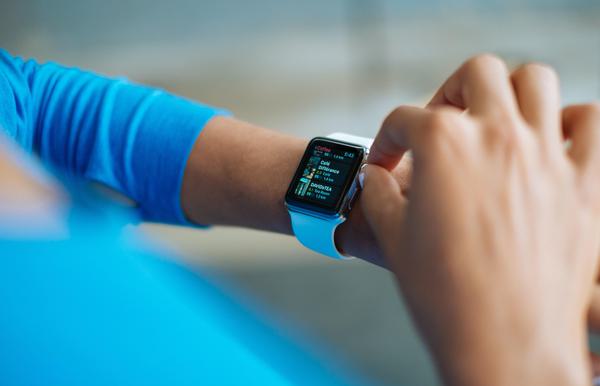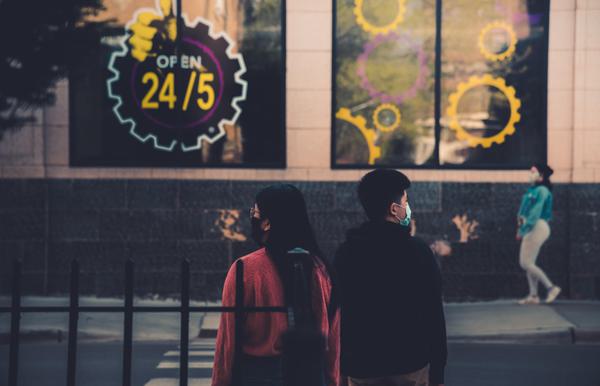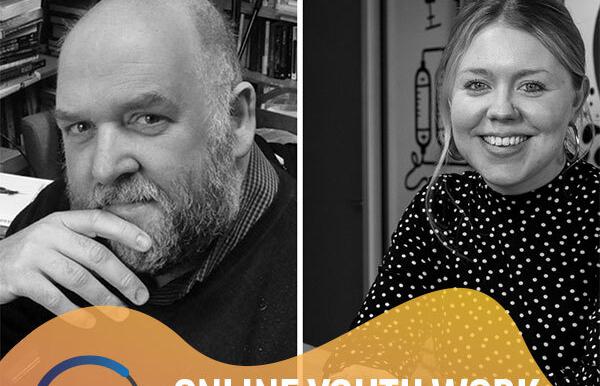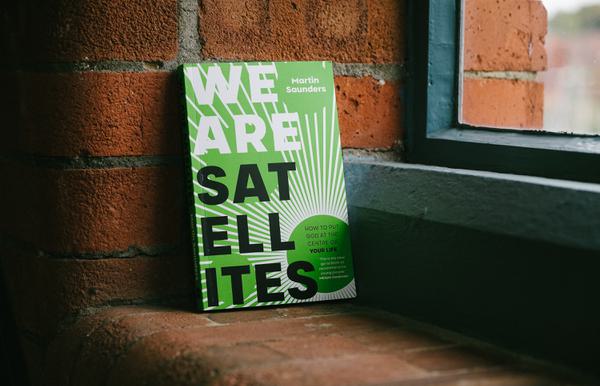How is Covid-19 reshaping our relationships and self-perceptions? Is digital technology overrated? What does it all mean for a theology of youth ministry?
Over the course of a few weeks, Youthscape’s Phoebe Hill and leading youth ministry thinker and theologian Andy Root sent each other a series of voice memos about theology and youth work in a pandemic. Here’s the first excerpt from their conversation.
Online faces & spaces
PHOEBE: Hey Andy! On the Youthscape podcast recently we ended up talking about theological perspectives on online youth work. We talked about what you wrote (all those years ago!) in Revisiting Relational Youth Ministry, about God being in the midst of the youth work relationship. The question I posed in the podcast and wanted to pose to you is whether or not you see place-sharing translating directly into an online domain? Or would you say that there is something fundamentally different about embodied face-to-face encounter in terms of the presence of God in our midst?
ANDY: Hey Phoebe. So here are my thoughts. I’ve thought quite a bit about place-sharing which for me is supposed to be this manifest place where the concreteness of revelation happens actually. So can that happen across Zoom or some other kind of digital space? What actually is space? I think there’s a deeper kind of conversation and way I want to think about space that I don’t know if I’m prepared to have, but there is something interesting like – Tom Torrance does this, the Scottish theologian, draws this parallel between Lutheran conceptions of space and more reformed conceptions of space, and he thinks that reformed conceptions of space are more based in relational dynamics. So relationships can actually make a space, whereas the Lutheran perspective doesn’t have that as much. So I don’t know what more there is to say other than that, but I think there’s something really interesting theologically about what constitutes space, and how relationship can create space. So the question then becomes, can digital spaces that are bound relationally – if that’s even possible – can they be a space for encounter with the presence of God? So thinking about it in the context of Zoom – I think that Zoom has all the suck factor of meetings in it. It allows meetings to happen, but there’s none of the spirit. The encounter of the human spirit is much harder across Zoom, especially when you get more than three or four people in a meeting. So I wonder about that.
“The pandemic slows us down…there’s an opening here for ministry to ask, 'What does it mean to be living a good life? What is this world we are living in?'”
So that’s one point, but the other that’s really interesting about Zoom, and why I am sceptical, is that – and I can’t quote it directly – but some of the studies have said that one of the things that happens on Zoom is that you can’t help looking at yourself. They think this is one of the driving engines of Zoom fatigue, that you are watching yourself basically, you are almost separated from yourself watching yourself in this meeting – and there’s something neurological about needing to watch ourselves. That makes something really fundamentally different, or creates a different kind of space if I’m always watching myself have a conversation, watching myself in this space. I’m almost separated from myself watching myself be in a space. I think that’s a really interesting thing, and what does that mean theologically? I think one of the things that happens in the context of place-sharing is that there is a way that it relativises the self in a productive way. The self is really important but the self is pulled into the face of the other. To think of Emmanuel Levinas here – what does it mean when I am always looking at my own face, and in that way distracted from the face of the other? And by face I mean face in a concrete form, but in the broadest form too. Is that what breaks down spirit, because I’m pulled into myself in a negative way? Or almost in a reflection to the Greek myth of Narcissus, the one that we get narcissism from. That I’m almost continually looking at myself as I interact.
The other side of this is that my wife is a pastor and has a woman in her congregation, and the woman was diagnosed with cancer. A mum of a four-year-old, and just out of the blue now has cancer. And to walk with them through this she is doing morning and evening prayer every night with them. Sometimes it's five or ten minutes, sometimes it's forty minutes. But every night she’s been walking with them for about a month. This would simply not be possible without Zoom. If they had to meet at the church or if she had to drive and go see them they couldn’t do it every night. So there’s a certain way in which Zoom is creating space for prayer to happen. And I wonder if that becomes one of the driving ways forward, how can these digital spaces – do you almost need to take on more direct practices like prayer, or perhaps some kind of liturgical move, that takes us out of ourselves and repositions the space in some way. So the place-sharing stuff and in some ways is still central in my work, is this sense of waiting for one another, and waiting for God to encounter us in the midst of this. I guess the issue becomes, inside of Zoom, is it a way for us to wait this out? A way for us to wait out the pandemic and get back to face to face encounters, or is it a way that we have to be there and do what we do in those spaces, and wait for God to move, or wait for our humanity to be unveiled to each other in some way?
"With my 16-year-old – when we do church on Zoom he never turns on his camera...they’ve had big issues with school now where they’ve sent emails around asking kids to turn on their cameras because kids just don’t want to turn on their cameras."
So to sum up or close I would say that the really interesting thing about the pandemic at one level is that it slows us down, it makes us have to rethink about what we think the good life is – as my work more recently has been trying to point to. That may be a good thing, or that may be an existential terror for people who have certain commitments towards the good life. So there’s an opening here for ministry to ask, what does it mean to be living a good life? What is this world we are living in? But the other element of it that I think that is a real challenge and difficulty, is that to have this person to person encounter through an online space is more difficult. I think it usually has to happen – like with my wife and her church – around people you know really well, and people who really need intercession or need something direct. And usually need something direct from the practice of the church. With my own kids, with my 16-year-old – when we do church on Zoom he never turns on his camera. He almost never turns on his camera. They’ve had big issues with school now where they’ve sent emails around asking kids to turn on their cameras because kids just don’t want to turn on their cameras. Which is an interesting developmental psychological thing, like – having to have a mirror in front of your face at the same time as you are looking at all these other people is exhausting at the very least, if not very weird.

Zoom fatigue
PHOEBE: Hey Andy, thanks so much for that. There are lots of things that I would love to pick up on and lots of interesting things that you said. So firstly just to think about the place stuff – I have a kind of working theory about technology that I’m kind of teasing around in my mind, particularly digital technology and this sense of – is digital technology a good thing? Or is that relevant to context and situation? And so in terms of a world that is already displaced or in the context of people or a world that is already displaced then technology becomes a relative good because if you are stuck at home ill or with cancer – as you know the example that you said – then it becomes an important way of being in contact with people, and it facilitates a relationship or a connection perhaps that you wouldn't have. Or you know in this current context where we are displaced from one another on a massive scale then digital technology becomes a way of connecting. But I think what I'm cautious of in general is this sense that is therefore a good, a bit like what you saying about, you know, is this just something that is going to see us out? I think the problem is when it becomes a crutch in the midst of displacement but then we never overcome that displacement or we don't seek to overcome it. I have an ongoing illness that has displaced me from people, and sometimes I wonder if – this is even pre-pandemic – if people sending a text it almost gets them out of having to come to visit and see me face-to-face, and what I really need is is face-to-face connection. So that's something I've been pondering.
I think the problem of using digital technology when we are displaced is that it starts to change our way of being in the world, and then it becomes something that we rely on rather than something that is a tool that can help us. I think what's interesting to me about what you said about the couple that your wife has been praying with is that actually sort of undermines my theory in some ways because as you said, Zoom has actually facilitated and new and different way of being present to each other. It's allowed them to create a space or a place that they wouldn't have created because it wouldn't have been feasible to meet face-to-face with them twice a day. I totally agree with that. I've been meeting to pray with some people on a Friday morning and I don't think that would have happened pre-pandemic because the feasibility of being able to be up and ready to come and meet people at 7 am… I mean I just don't- I certainly wouldn't be able to do that. Whereas actually by Zoom we can be in our dressing gowns, it doesn’t matter what state we're in, we don't have to be dressed – I mean obviously dressed and some sense – but not ready for the world. So in that sense it isn't just a crutch in the midst of displacement, it is something that is enabling us to be present in a new way and it's actually creating a new kind of place. So as you said, I do wonder if there are new possibilities for encounter through Zoom but they won't be the same, they won't replicate the kinds of places we can create face-to-face but they will be new and positive in a different way.
"I do wonder if we were ever actually meant to look at ourselves in the way that we do, or if we were simply meant to be looked at by the other. The challenge of selfie culture, of screens, of Zoom, is that we just are constantly looking at our own faces."
I certainly feel you in terms of Zoom fatigue. I was presenting some research the other day with hundreds of faceless screens and I was just looking at myself presenting this thing, and it's just bizarre. Everything you were saying about this strange reality of looking at yourself and seeing your own face – it made me think about John Paul Sartre and his distinction between my being-in-itself and my being-for-others, and how the look of the other, the gaze of the other who looks at me, creates this kind of alienation and separation in my being, and that there's suddenly this part of myself that I have no access to which is my being-for-others, which is how I am received and perceived by them. That's a relationship of kind of antagonism for Sartre in a way that it isn't for others like Levinas. I wonder if this zoom mirroring of our own faces – it creates almost this third category which is not just my being as I am, not just my being as I'm perceived by others, but the being that I am constructing for others but I'm still alienated from…? I still don't have complete control over how the other receives me, but suddenly I can see what they see of myself, and can try – I guess this is true of social media as well, it's not just Zoom – but I can try to engineer my being-for-others or the way in which I am received by them and yet I'm still alienated from it. It's a kind of multiple alienation, and it's really tiring! It's tiring trying to construct that sense of how other people are going to receive me. And yet I feel like I have to do it. I have to start to construct that. And I can totally see why young people don't put their cameras on.
I kind of wonder if we were ever meant to see ourselves, before the creation of a mirror. Yes there were rivers and things, people would see a sort of hazy reflection, but I do wonder if we were ever actually meant to look at ourselves in the way that we do, or if we were simply meant to be looked at by the other. The challenge of selfie culture, of screens, of Zoom, is that we just are constantly looking at our own faces. I don't know what that does for our sense are true sense of self, for our true sense of identity. The idea of our identity being held in Christ – that's very hard when you’re constantly looking at yourself rather than at Christ. I mean, I don't know what the answer is… we can't live in a world where we don't look at ourselves, but it does certainly distort our perceptions of who we are. I’m thinking now of what Bonhoeffer says about only being able to have an individual in community, or that sense that it is only through my relation with another that I find my identity, and that's the kind of true destination for discovering myself my true self. And that's most true in relation with Christ. This sense of trying to construct and find my identity by looking at myself – is that only ever going to lead me to a false sense of who I am, or to sin, or to death? I don't know.
What do you think? You can join the discussion on social media via @Youthscape , @DrPhoebeHill and @YWResearch. Check out Part Two of this conversation here.









